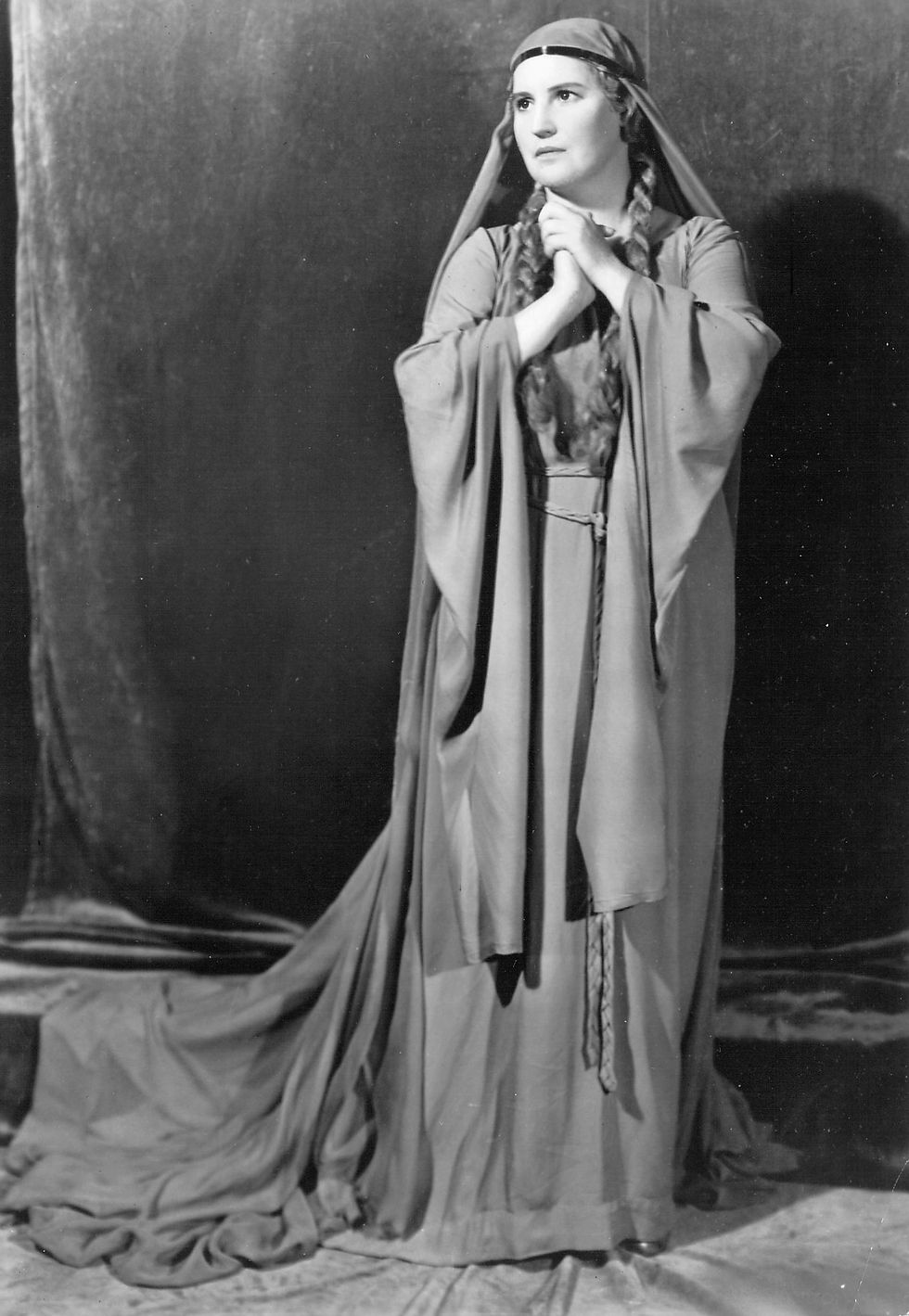Kirsten Flagstad on How to Sing Wagner
- Julia Pneva
- 18 нояб. 2022 г.
- 3 мин. чтения
Обновлено: 8 дек. 2024 г.

Some tips for young singers from the greatest Wagnerian soprano of the 20th century.
1. Leave Wagner alone
… because he calls for powers that can be developed only after many years of singing.
Kirsten was already 34 years old and she had been singing regularly for about 15 years before she attempted her first Wagnerian role — Elsa in "Lohengrin". Though American and English audience associate her almost entirely with Wagner roles, Kirsten sang Nedda, Mimi, Tosca, Micaela, Aida, Desdemona, Marguerite and other roles. She also sang in many operettas. Kirsten said this helped her to develop her acting and gave her a thorough understanding of stage business. It was after all this experience that she felt she was ready to sing Elsa, later Isolde, her second Wagnerian role, and finally Brünnhilde. Even though Elsa is considered one of the Wagner lighter parts, it still requires great vocal experience. "For other more difficult roles like Isolde or Brünnhilde, Kirsten noted, you need even more: a perfectly placed voice, absolute control of the breath and immense staying power".

Kirsten Flagstad as Elsa
2. The word "grow" is the most important of all
"For the singer who wants to sing Wagner, it should be almost the same as for a weightlifter. Building their muscles by slow degrees, adding gradually to the weight they lift before they are able to attempt the very heaviest weights". Isolde and Brünnhilde are the heaviest roles the singer ever wants to sing, according to Kirsten. "If you ever wish to sing them, you must be prepared for many years of steady growth before you make the attempt", she pointed out.
3. How to work on Wagnerian roles
People often asked how she managed to memorize such long parts as Isolde and Brünnhilde. Kirsten explained, "Speaking for myself, I start singing the part over the piano, gradually forming my own idea of what it is all about, and it is the music that speaks itself in my memory. Then come the words which require hard work as Wagner is almost sung in the original language — German. Even now sometimes I make mistakes in some words. Having got a pretty good idea of the words and music, I am now ready to work with the coach. This time it is he who sits at the piano and plays. I stand and try to sing from my memory. I give myself entirely into his professional help, resting upon his knowledge and experience until at last after many months of hard work I am ready for stage rehearsals with the producer and the conductor".

Kirsten Flagstad as Isolde
4. Endurance practice
Kirsten continued, "In connection with this, I might mention that I always sing with a full voice even at rehearsals, finding that it builds up my endurance which is very necessary for long and heavy performances. The interpretation of masterworks like those of Wagner is a process of never-ending development. Always the role is beyond one's complete grasp. It is only possible to come near to it with each performance, but never to reach it. There are flashes of new inspiration, fresh subtleties, deeper meanings. That is what makes the work endlessly absorbing".
5. Relaxation
"All my three teachers taught me to relax. Always try to keep calm. I am normally so relaxed before going on stage, that I am constantly yawning. Yawning is the most relaxed position for your neck and throat", noted Kirsten.
6. Words
"I was taught from the very beginning to always sing with words, even my exercises. I was taught from the very beginning that words and their meaning should be inseparable in music. This is especially important in Wagner comes from long narratives when the singer is telling what has happened before in the story. When I had my audition in Bayreuth, I was told that I should improve my German diction. This Wagnerian diction consists in the strong explosion of consonants, especially the end ones".
7. Before the performance
"I practice very little before the performance, but I always sing a certain phrase which I find very helpful. It is a beautiful passage from "Die Walküre" in which Brünnhilde warns Siegfried he is to die. I was always told that if the low voice is placed correctly, then the high voice will be in position too. I use this phrase as my little test piece".
Interview recorded in 1950

Комментарии